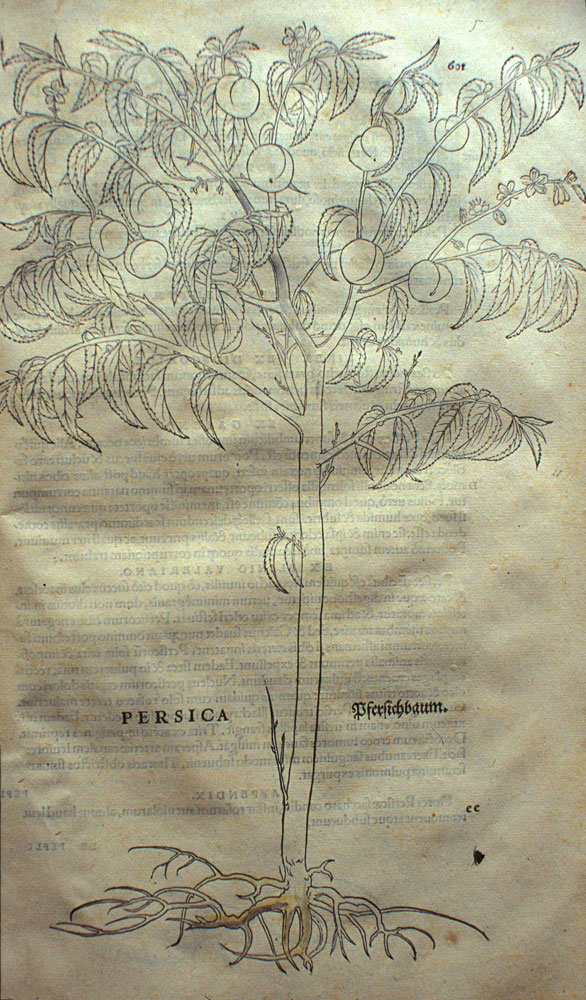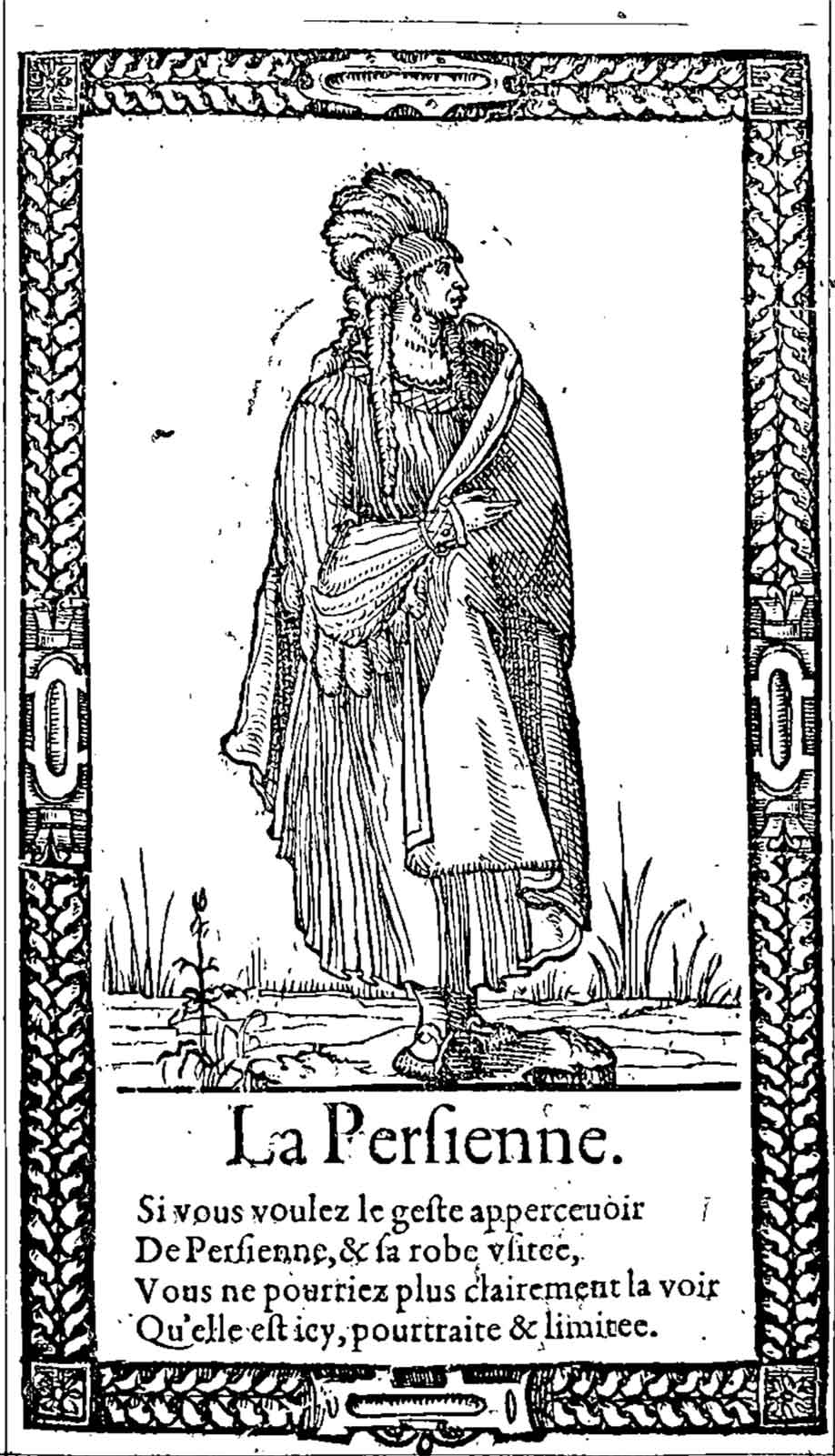Among the plants that have retained the names of the regions from which they were formerly transported.
Notes
persica

Persica
Pfersichbaum
Taxon: Prunus persica (L.) Batsch
Ancient Greek: persika mela
English: peach
Le Persien

De Perse sont les peuples anciens,
D’eux mainte hystoire on voit par escripture,
Le propre habit est tel des Persiens,
Que le voyez en cest pourtraiture.
La Persienne

Si vous voulez le geste appercevoir
De Persienne, & sa robe usitee,
Vous ne pourriez plus clairement la voir
Qu’elle est ici, pourtraite & limitee.
persica
In totum quidem Persica peregrina etiam Asiae Graeciaeque esse ex nomine ipso apparet, atque ex Perside advecta. sed pruna silvestria ubique nasci certum est, quo magis miror huius pomi mentionem a Catone non habitam, praesertim cum condenda demonstraret quaedam et silvestria. nam Persicae arbores sero et cum difficultate transiere, ut quae in Rhodo nihil ferant, quod primum ab Aegypto earum fuerat hospitium. falsum est venenata cum cruciatu in Persis gigni et poenarum causa ab regibus translata in Aegyptum terra mitigata; id enim de persea diligentiores tradunt, quae in totum alia est myxis rubentibus similis nec extra orientem nasci voluit. eam quoque eruditiores negaverunt ex Perside propter supplicia translatam, sed a Perseo Memphi satam, et ob id Alexandrum illa coronari victores ibi instituisse in honorem atavi sui. semper autem folia habet et poma subnascentibus aliis. sed pruna quoque omnia post Catonem coepisse manifestum erit.
The Persian plum or peach, it is true, is shown by its very name to be an exotic even in Asia Minor and in Greece, and to have been introduced from Persia. But the wild plum is known to grow everywhere, which makes it more surprising that this fruit is not mentioned by Cato, especially as he pointed out the way of storing some wild fruits also. As for the peach-tree, it was only introduced lately, and that with difficulty, inasmuch as in Rhodes, which was its first place of sojourn after leaving Egypt, it does not bear at all. It is not true that the peach grown in Persia is poisonous and causes torturing pain, and that, when it had been transplanted into Egypt by the kings to use as a punishment, the nature of the soil caused it to lose its dangerous properties; for the more careful writers relate this of the persea [The persea is the modern Mimusops Schimperi, and the myxa is the modern sebesten], which is an entirely different tree, resembling the red myxa, and which has refused to grow anywhere but in the east. The sebesten also, according to the more learned authorities, was not introduced from Persia for punitive purposes, but was planted at Memphis by Perseus, and it was for that reason that Alexander, in order to do honour to his ancestor, established the custom of using wreaths of it for crowning victors in the games [Instituted by Alexander in honour of the hero Perseus, son of Zeus, from whom he claimed descent] at Memphis. It always has leaves and fruit upon it, fresh ones sprouting immediately after the others. But it will be obvious that all our plums also have been introduced since the time of Cato.
Persicques
Urquhart translates as “Persicarie.” Ozell notes, “Rabelais says, Persique (Persica), a Peach-tree, not the herb called Persicaria, i.e. Arse smart or Cul-rage.”
Peaches
“Persica mala; ex Perside advecta” (Pliny xv. 13, § 13).
persicques
« Ex Perside advecta [persica] », dit Pline (XV, 13). C’est le pècher, Persica vulgaris, D. C. Les Grecs et les Romains le reçurent de la Perse ou de l’Asie orientale, mais de Candolle le croit originaire de la Chine. (Paul Delaunay)
Persia
Persian. Forms: Percien, -sien, -cynne, -syn, -sen; -san, -sante, Persian, ( -cian). [originally Middle English Persien, adopted from French persien: -Latin type *Persianus, formed on Persia, name of the country, in Greek Persij.]
Of or pertaining to Persia (modern Iran), or its inhabitants or language. Also, of or pertaining to a Persian cat.
A. 1400-50 Alliterative Romance of Alexander 2885 Þe pure propure name in percynne tonge.
1587 Harrison England ii. xxii. (1877) I. 338 Our men are… become..through Persian delicacie crept in among vs altogither of straw.
1605 Shakespeare King Lear iii. vi. 85, I do not like the fashion of your garments. You will say they are Persian.